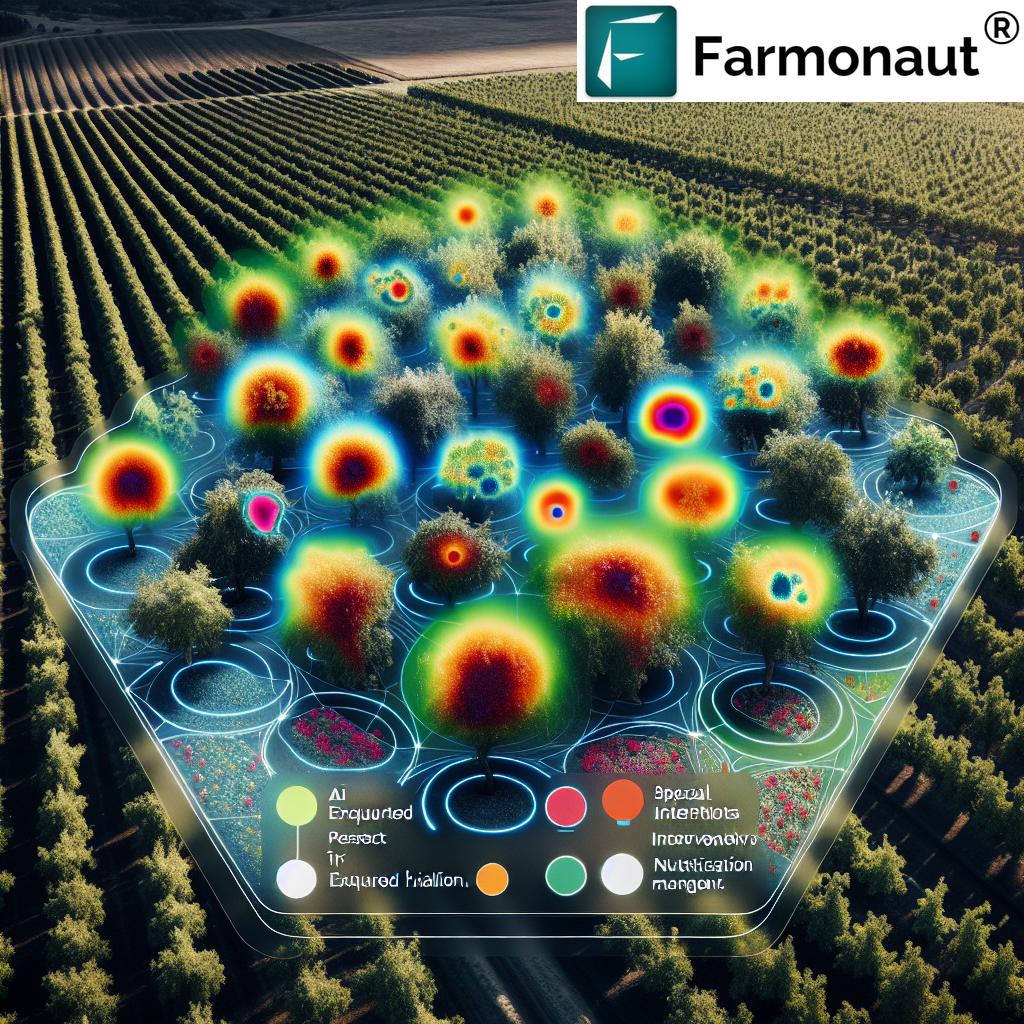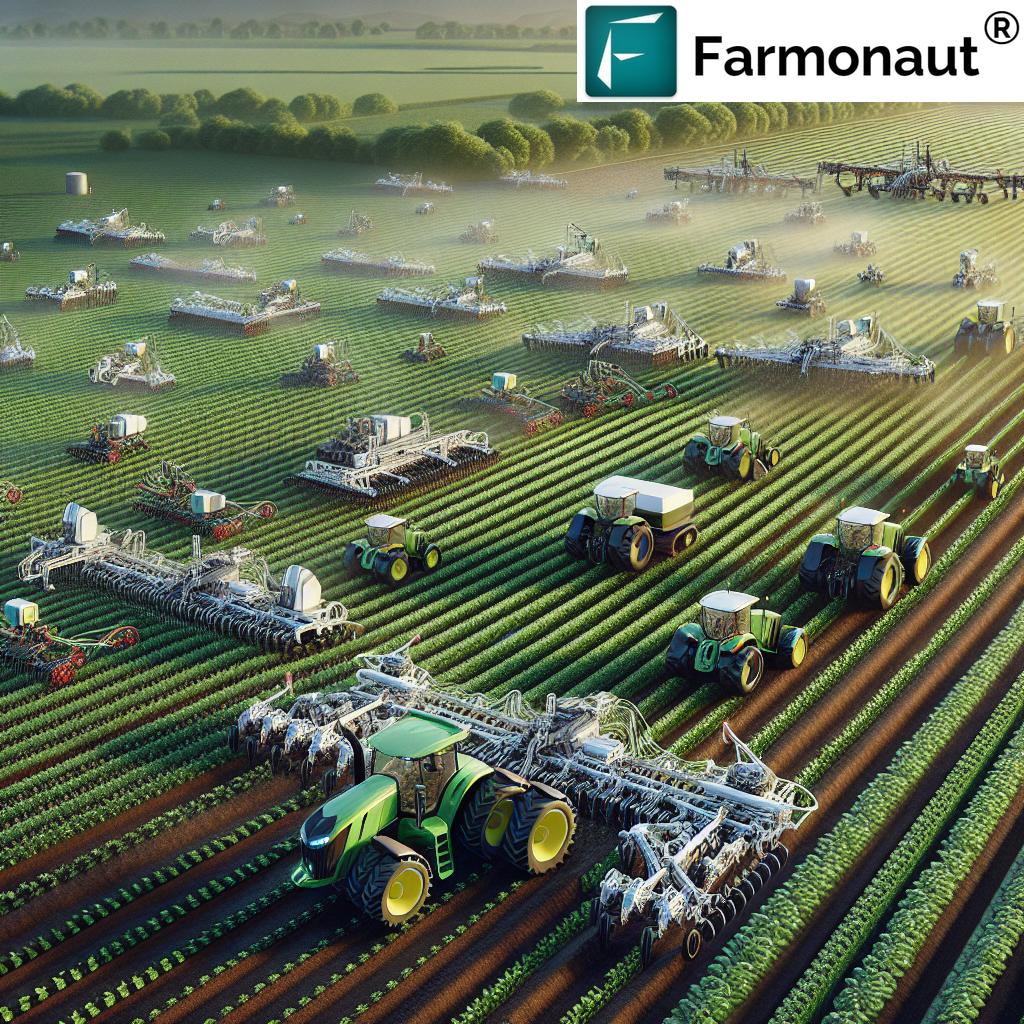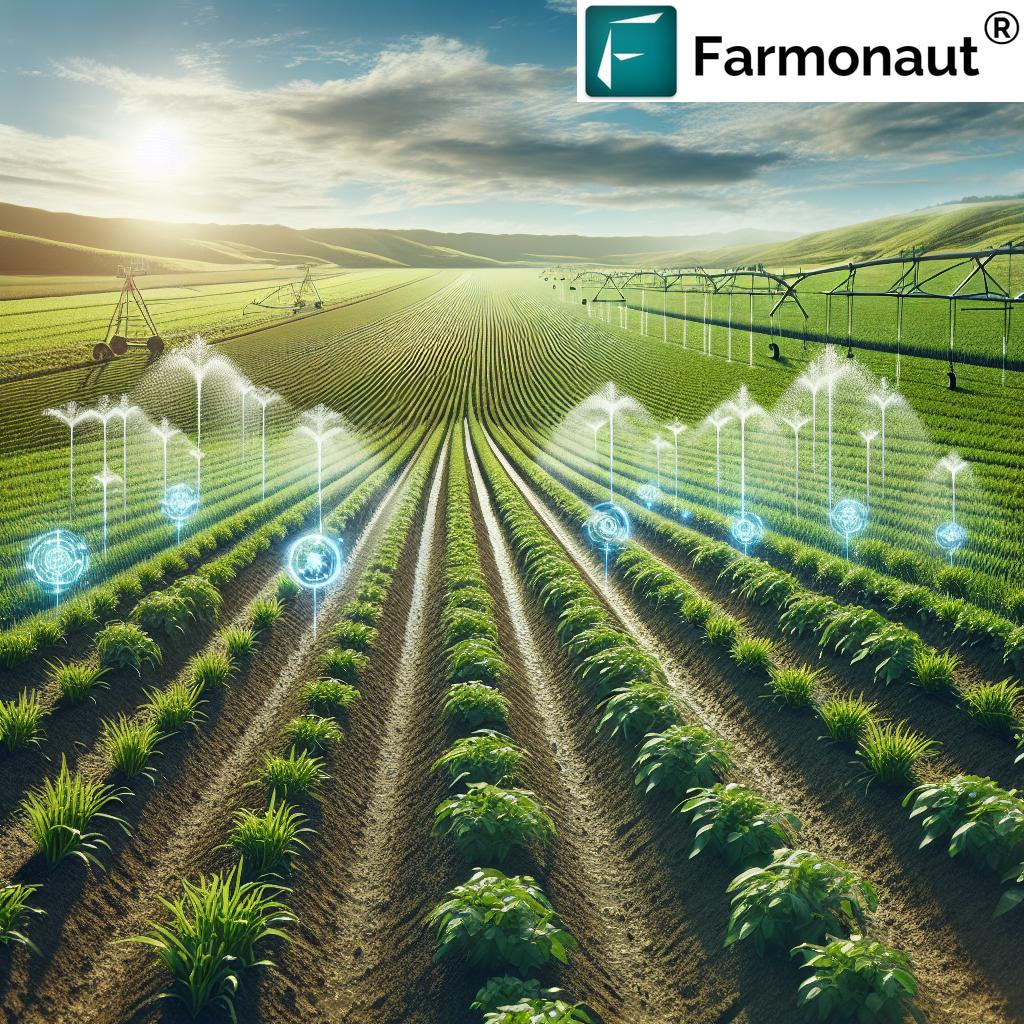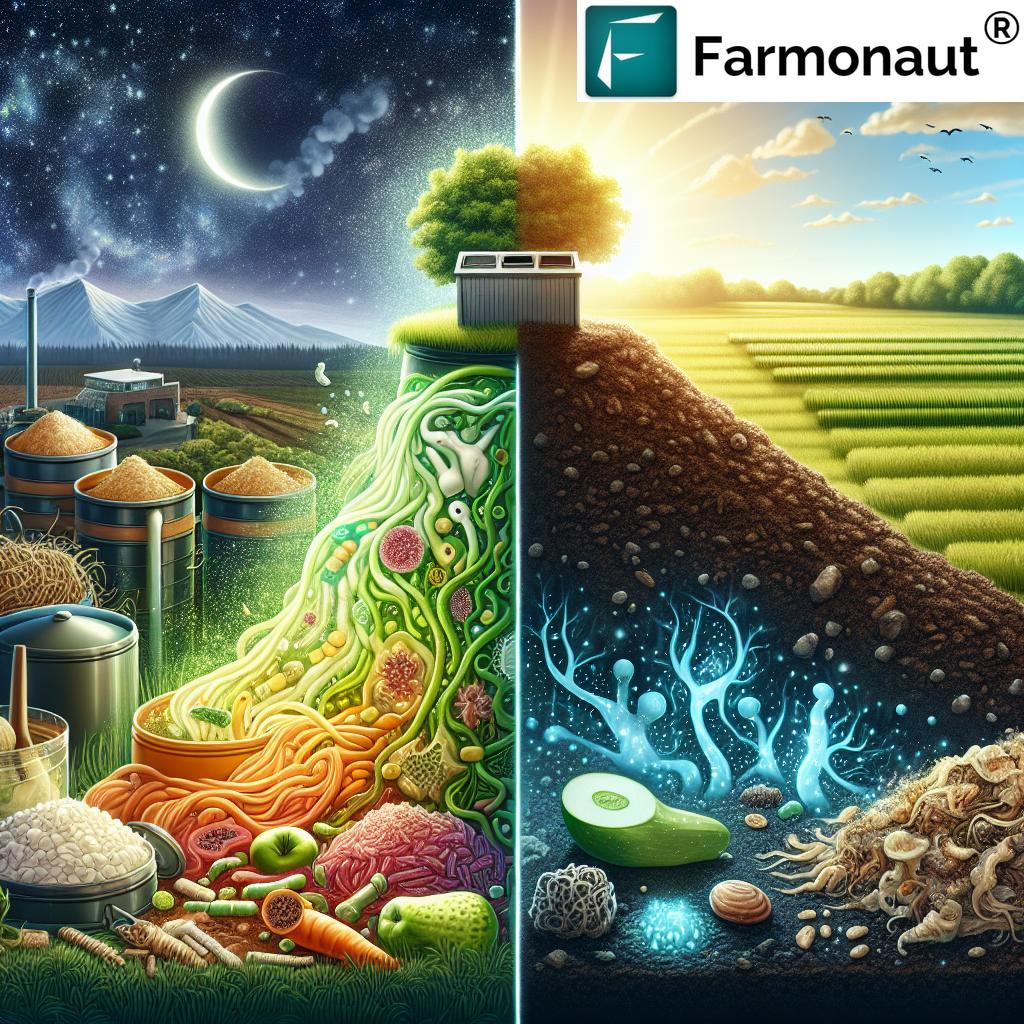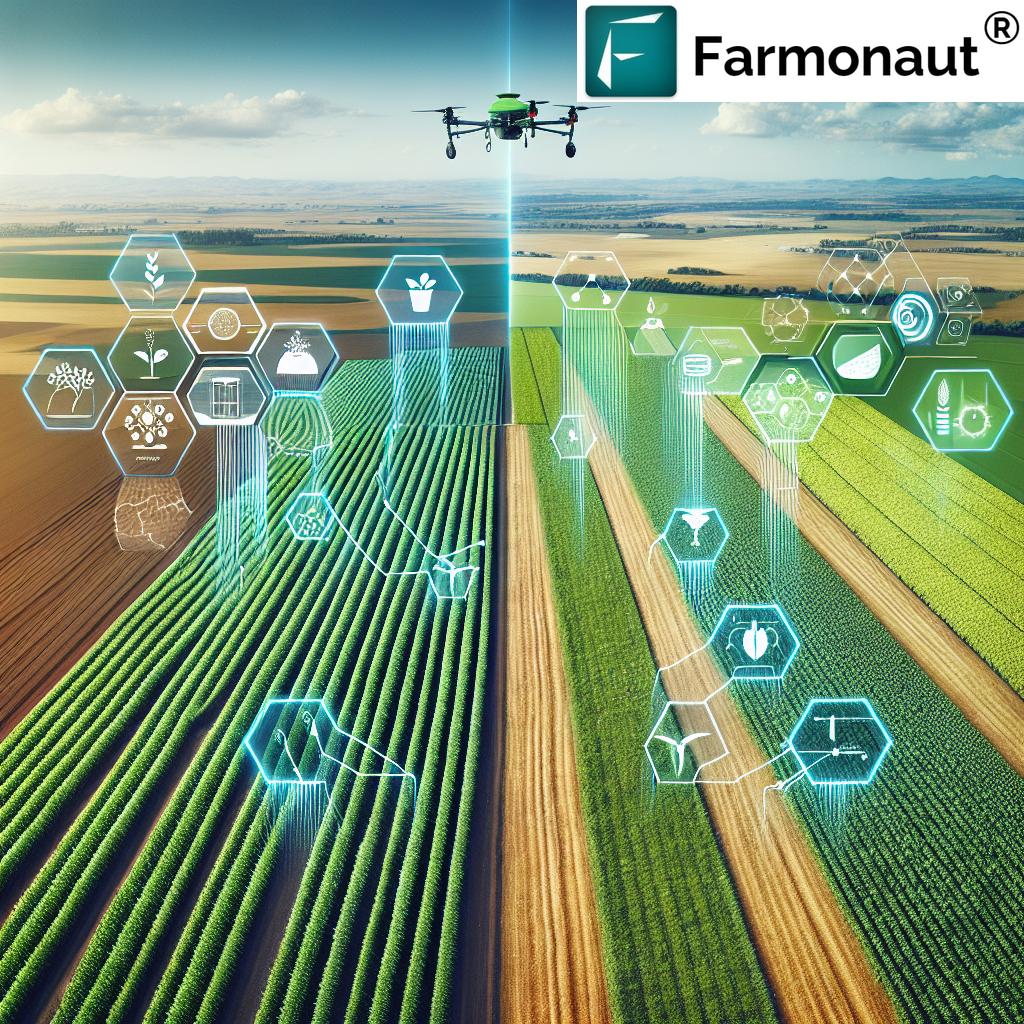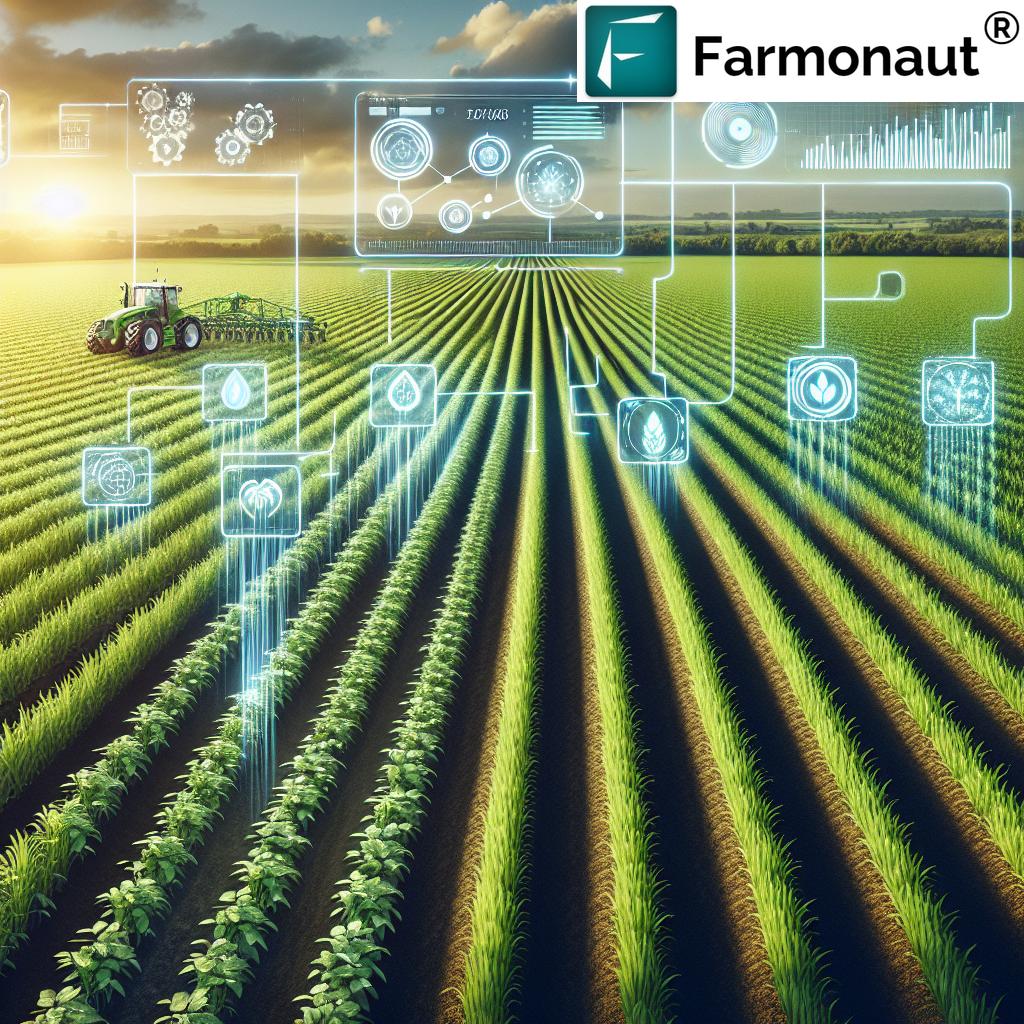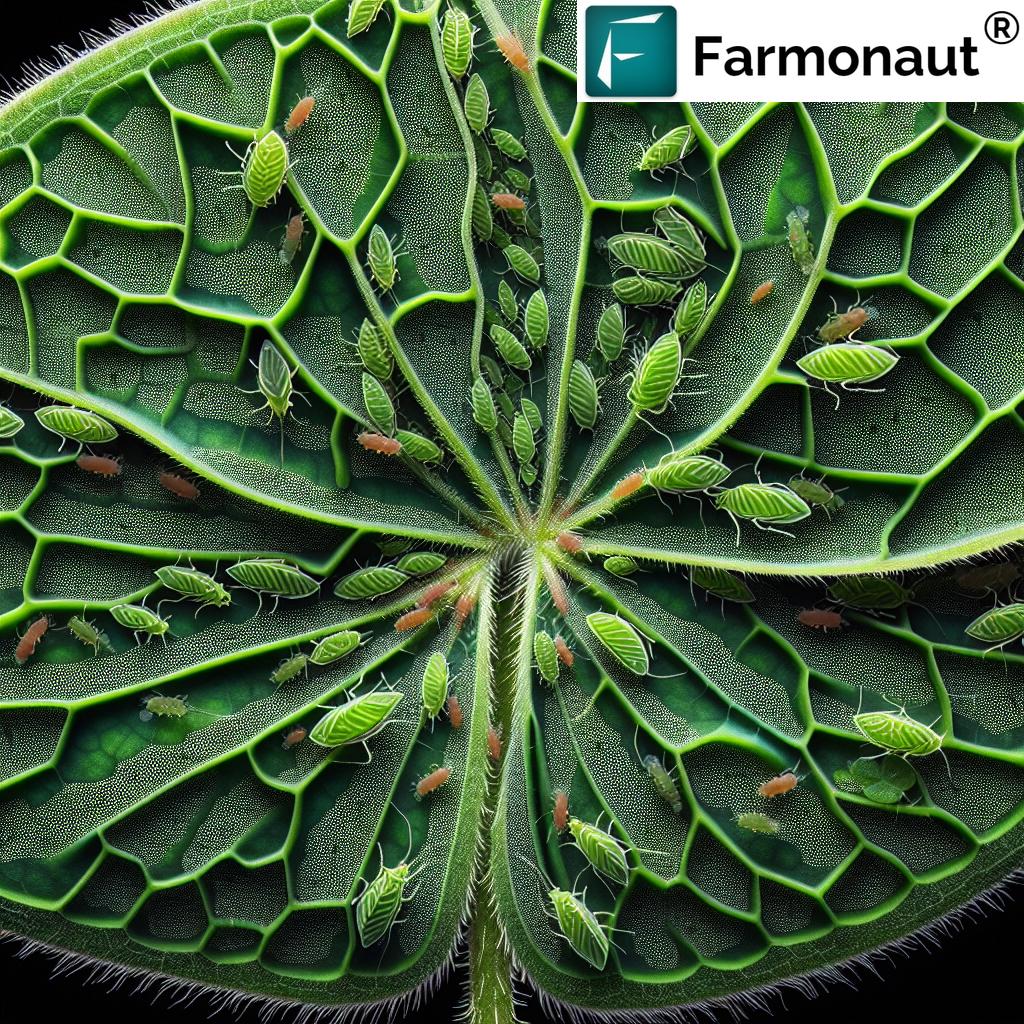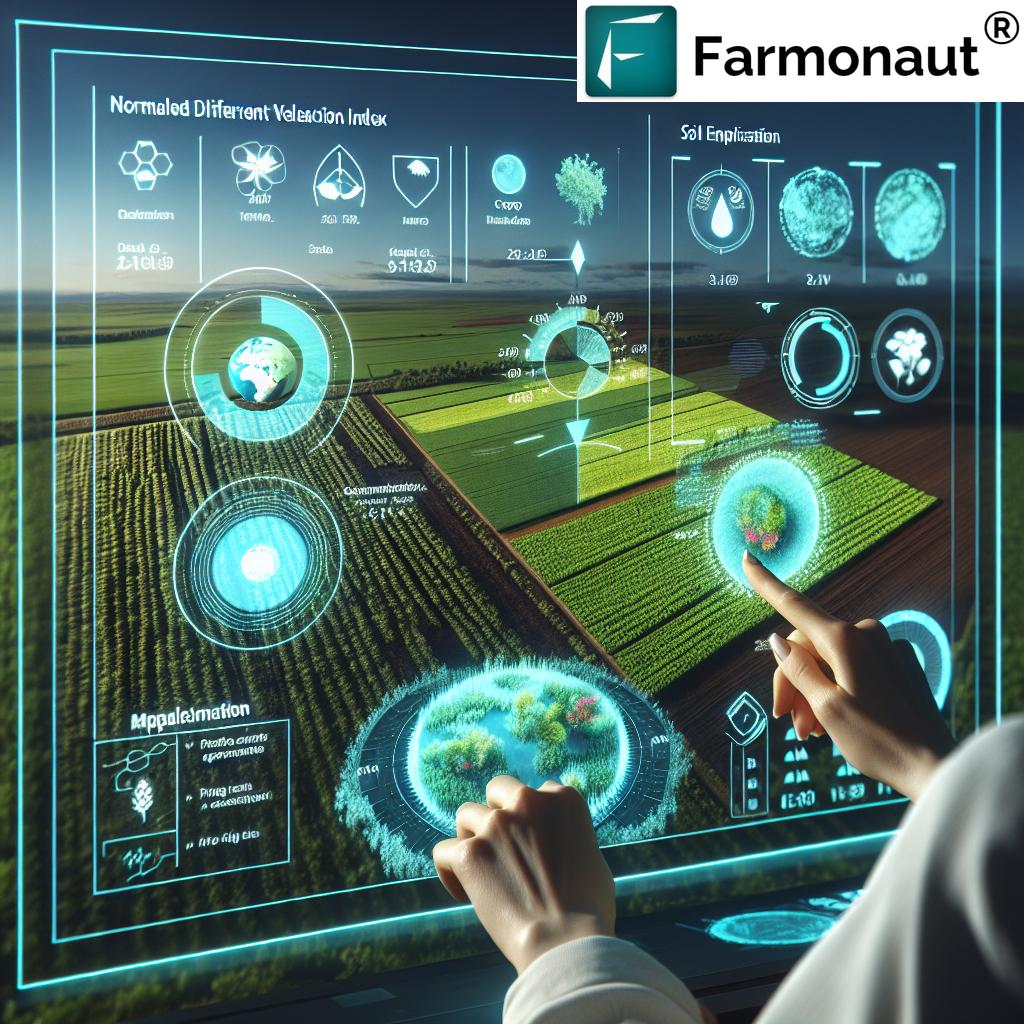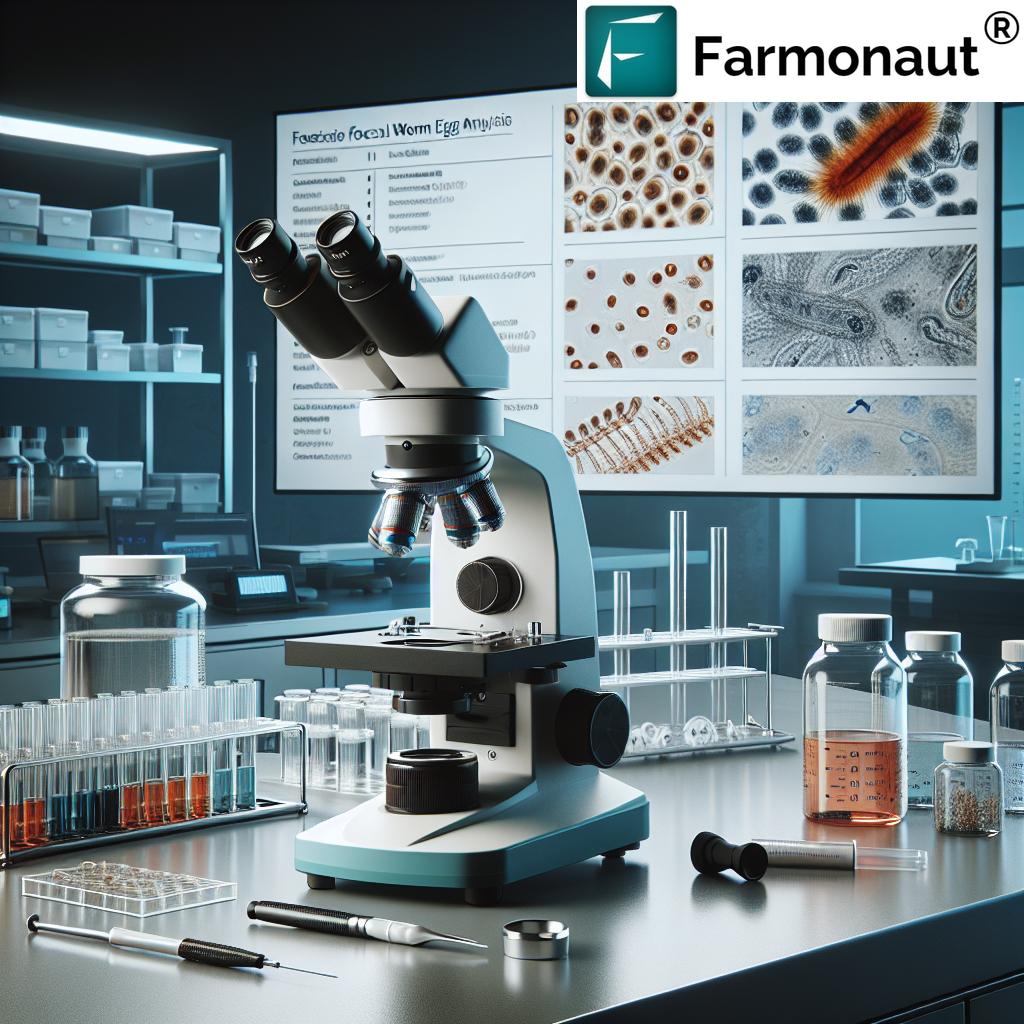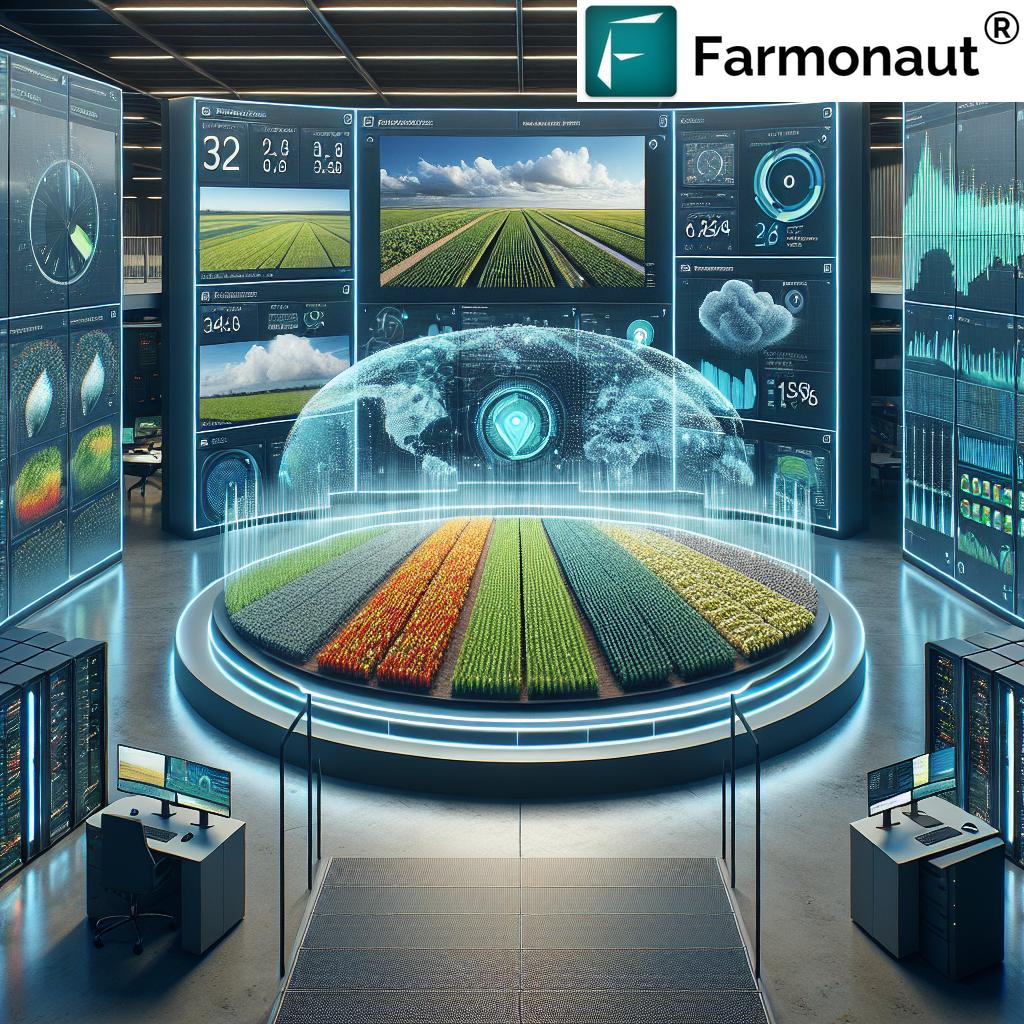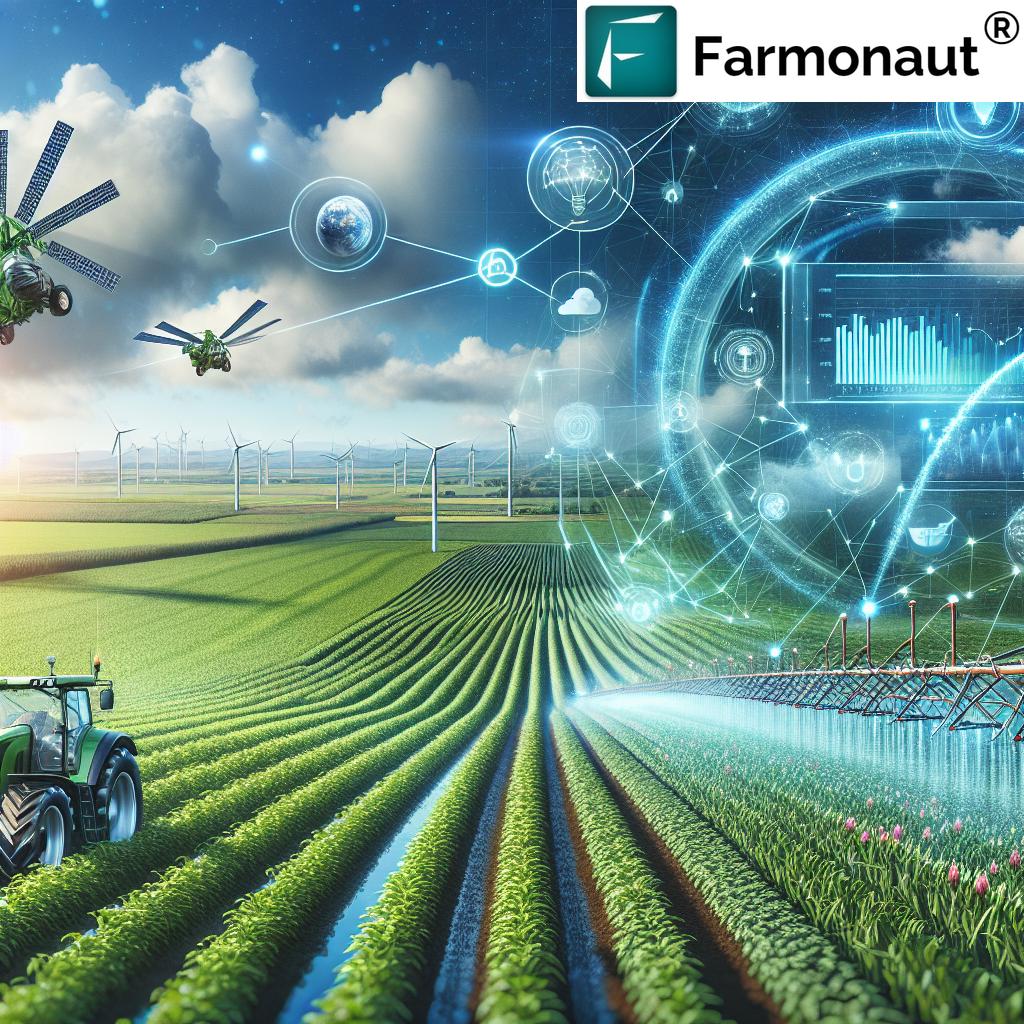AI-Powered Tree Health: Revolutionizing Plant Care in Agriculture and Horticulture
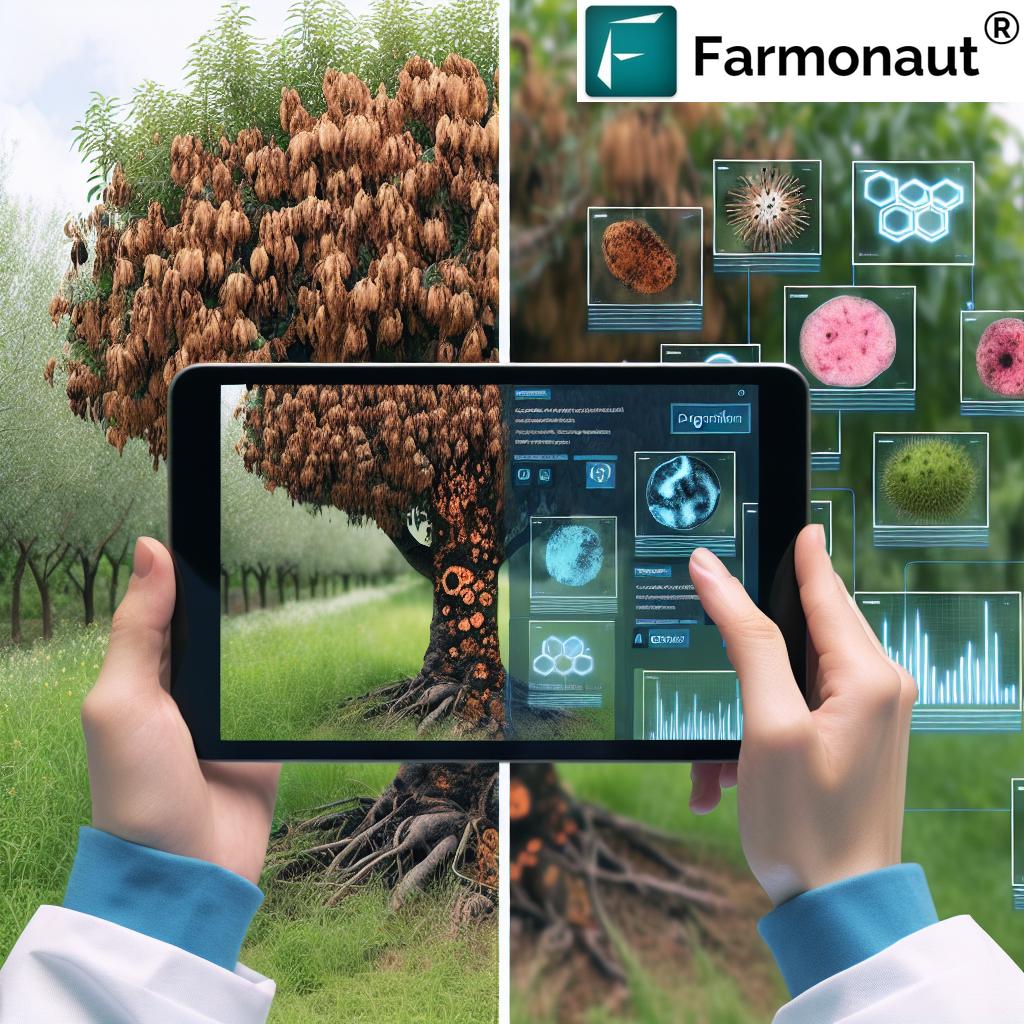
In the ever-evolving world of agriculture and horticulture, the health of trees and plants remains a critical concern for growers, gardeners, and agricultural professionals alike. With the advent of artificial intelligence (AI) and advanced satellite technology, we are witnessing a revolutionary approach to plant care and disease management. At Farmonaut, we’re at the forefront of this transformation, offering cutting-edge solutions that combine the power of AI with precision agriculture techniques.
The Importance of Tree and Plant Health in Agriculture
Trees and plants play a vital role in our ecosystems and agricultural systems. They provide us with food, oxygen, and countless other resources. However, they are constantly under threat from various diseases, pests, and environmental stressors. Maintaining the health of these green assets is crucial for several reasons:
- Ensuring food security and sustainable agriculture
- Preserving biodiversity and ecological balance
- Mitigating climate change through carbon sequestration
- Supporting local and global economies
Traditional methods of monitoring plant health often fall short in providing timely and accurate information, leading to delayed interventions and significant losses. This is where AI-powered solutions come into play, offering a game-changing approach to plant care and disease management.
The AI Revolution in Plant Health Monitoring
Artificial intelligence is transforming the way we approach plant health assessment and management. By leveraging machine learning algorithms and advanced imaging technologies, AI systems can quickly and accurately identify a wide range of plant health issues, including:
- Diseases affecting foliage, trunk, twigs, and roots
- Pest infestations, including beetles and borers
- Nutrient deficiencies and soil-related problems
- Environmental stress factors
These AI-powered systems offer several advantages over traditional methods:
| Aspect | Traditional Methods | Farmonaut AI-Powered System |
|---|---|---|
| Speed of Identification | Slow, often requiring days or weeks | Instant, providing real-time results |
| Accuracy | Variable, depending on expert knowledge | High accuracy, leveraging vast datasets and machine learning |
| Cost-effectiveness | Often expensive, requiring on-site visits | Highly cost-effective, using satellite and remote sensing data |
| Early-stage Detection | Limited, often detecting issues when symptoms are visible | Advanced, capable of detecting problems before visible symptoms appear |
Farmonaut’s AI-Powered Plant Health Solution
At Farmonaut, we’ve developed a state-of-the-art AI system that revolutionizes plant health monitoring and management. Our solution combines satellite imagery, machine learning algorithms, and expert knowledge to provide growers with unprecedented insights into their crops and orchards.
Key Features of Our AI-Powered System:
- Satellite-Based Monitoring: We utilize high-resolution satellite imagery to capture detailed views of agricultural lands, enabling large-scale monitoring without the need for on-site visits.
- Advanced Image Analysis: Our AI algorithms analyze multispectral imagery to detect subtle changes in plant health, often before they’re visible to the naked eye.
- Comprehensive Disease and Pest Database: We’ve built an extensive database of plant diseases, pests, and nutritional issues, allowing our system to accurately identify a wide range of problems.
- Real-Time Alerts: Growers receive instant notifications when potential issues are detected, allowing for timely interventions.
- Customized Recommendations: Based on the identified issues, our system provides tailored recommendations for treatment and management.
The Process: From Detection to Action
Our AI-powered plant health monitoring system follows a streamlined process to ensure quick and effective responses to potential threats:
- Data Collection: High-resolution satellite images are captured regularly, providing a comprehensive view of the monitored area.
- AI Analysis: Our advanced algorithms analyze the imagery, looking for signs of stress, disease, or pest infestation.
- Issue Identification: The system compares detected anomalies with its extensive database to identify specific problems.
- Alert Generation: If an issue is detected, an alert is immediately sent to the grower or agricultural professional.
- Recommendation Formulation: Based on the identified problem, the system generates tailored recommendations for treatment and management.
- Monitoring and Follow-up: Continuous monitoring allows for tracking the effectiveness of interventions and adjusting strategies as needed.
Common Tree and Plant Health Issues Addressed by AI
Our AI-powered system is capable of identifying and providing solutions for a wide range of plant health issues, including:
1. Diseases
Plant diseases can be devastating if not caught early. Our system can identify various diseases affecting different parts of the plant:
- Foliar Diseases: Such as powdery mildew, rust, and leaf spot diseases
- Trunk and Root Diseases: Including root rot, cankers, and vascular wilts
- Fruit and Flower Diseases: Like blossom blight and fruit rots
2. Pest Infestations
Pests can cause significant damage to crops and trees. Our AI system can detect signs of various pest problems:
- Insect Infestations: Including aphids, scale insects, and caterpillars
- Borers and Beetles: Which can cause severe damage to tree trunks and branches
- Mites and Nematodes: Often difficult to detect with the naked eye
3. Nutrient Deficiencies
Proper nutrition is crucial for plant health. Our system can identify signs of various nutrient deficiencies:
- Macronutrient Deficiencies: Such as nitrogen, phosphorus, and potassium deficiencies
- Micronutrient Deficiencies: Including iron, zinc, and boron deficiencies
- pH-Related Issues: Which can affect nutrient availability
4. Environmental Stress
Environmental factors can significantly impact plant health. Our AI can detect signs of stress caused by:
- Drought Stress: Identifying areas with insufficient water
- Temperature Extremes: Detecting heat or cold damage
- Soil Compaction: Which can affect root health and nutrient uptake
Benefits of AI-Powered Plant Health Monitoring
Implementing an AI-powered plant health monitoring system offers numerous benefits for growers, agricultural professionals, and the environment:
- Early Detection: Identify potential issues before they become severe, allowing for proactive management.
- Improved Accuracy: AI-powered systems can detect subtle changes that might be missed by human observers.
- Cost-Effective: Reduce the need for frequent on-site inspections and prevent costly crop losses.
- Time-Saving: Automated monitoring and alerts free up time for other important tasks.
- Targeted Interventions: Precise problem identification allows for more targeted and effective treatments.
- Reduced Chemical Use: Early detection and targeted treatments can lead to reduced pesticide and fertilizer use.
- Improved Yields: By maintaining optimal plant health, growers can achieve higher yields and better quality produce.
- Environmental Benefits: More efficient resource use and reduced chemical applications contribute to sustainable agriculture.
Case Studies: AI in Action
To illustrate the effectiveness of AI-powered plant health monitoring, let’s look at a few hypothetical case studies:
Case Study 1: Early Detection of Apple Scab in an Orchard
An apple orchard in Washington state implemented our AI-powered monitoring system. Within the first growing season, the system detected early signs of apple scab infection in a small section of the orchard, well before any visible symptoms appeared. The grower was able to apply targeted fungicide treatments to the affected area, preventing the spread of the disease and saving an estimated 15% of the crop that would have been lost without early intervention.
Case Study 2: Nutrient Management in a Citrus Grove
A citrus grove in Florida used our AI system to monitor tree health. The system identified patterns of zinc deficiency in certain areas of the grove, which were not yet showing visible symptoms. By addressing this deficiency early with targeted micronutrient applications, the grower was able to improve fruit quality and increase yield by 10% compared to previous years.
Case Study 3: Pest Management in a Forest Plantation
A large forest plantation used our AI monitoring system to track tree health across thousands of acres. The system detected early signs of a pine beetle infestation in a remote area of the plantation. This early warning allowed forestry managers to implement targeted pest control measures, preventing the spread of the infestation and saving an estimated $500,000 in potential timber losses.
Implementing AI-Powered Plant Health Monitoring
Integrating AI-powered plant health monitoring into your agricultural or horticultural operations is a straightforward process with Farmonaut:
- Assessment: We work with you to understand your specific needs and the areas you want to monitor.
- Setup: Our team sets up the satellite monitoring system for your designated areas.
- Training: We provide training on how to use our platform and interpret the data and alerts.
- Ongoing Support: Our team of experts is always available to provide support and answer questions.
To get started with our AI-powered plant health monitoring system, visit our website at https://farmonaut.com/app_redirect or download our mobile app:
- Android: Farmonaut on Google Play
- iOS: Farmonaut on the App Store
The Future of AI in Plant Health Management
As AI technology continues to advance, we can expect even more sophisticated and effective plant health monitoring systems in the future. Some potential developments include:
- Integration with IoT Devices: Combining satellite data with ground-based sensors for even more accurate monitoring.
- Predictive Analytics: Using historical data and weather forecasts to predict potential health issues before they occur.
- Automated Drone Inspections: Using AI-guided drones for closer inspections of identified problem areas.
- Gene Expression Analysis: Incorporating genetic data to predict plant susceptibility to specific diseases or pests.
Conclusion
AI-powered plant health monitoring represents a significant leap forward in agricultural and horticultural management. By providing early, accurate, and comprehensive insights into plant health, these systems enable growers and agricultural professionals to take proactive measures, optimize resource use, and ultimately improve yields and sustainability.
At Farmonaut, we’re committed to continuing innovation in this field, providing cutting-edge solutions that help growers around the world maintain healthy, productive crops and orchards. By embracing AI technology, we can work towards a future of more sustainable, efficient, and productive agriculture.
FAQs
-
Q: How accurate is AI in identifying plant diseases and pests?
A: Modern AI systems can achieve accuracy rates of over 95% in identifying common plant diseases and pests, often surpassing human experts in speed and consistency. -
Q: Can AI-powered systems detect issues before they’re visible to the naked eye?
A: Yes, AI systems using multispectral imaging can often detect stress in plants before visible symptoms appear, allowing for earlier intervention. -
Q: How often does the AI system update its plant health assessments?
A: Our system provides updates based on the latest satellite imagery, which can be as frequent as daily in some areas. The exact frequency depends on satellite coverage and subscription level. -
Q: Is the AI system effective for all types of crops and trees?
A: While our system is highly versatile, its effectiveness can vary depending on the specific crop or tree species. We continuously expand our database to improve coverage across different plant types. -
Q: How does AI-powered monitoring compare to on-site inspections?
A: AI-powered monitoring complements on-site inspections by providing continuous, large-scale surveillance. It can identify areas that need closer inspection, making on-site visits more targeted and efficient.
For more information on our AI-powered plant health monitoring system and other agricultural solutions, please visit our website or contact our team of experts. We’re here to help you achieve healthier crops and more sustainable agricultural practices.
Subscribe to Farmonaut
